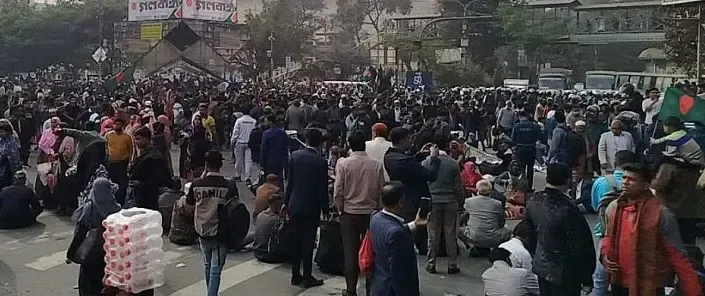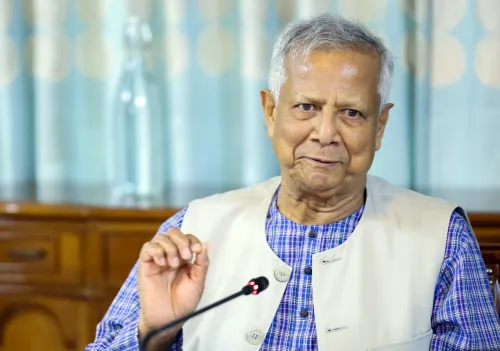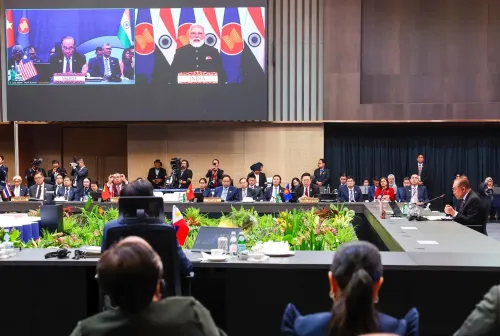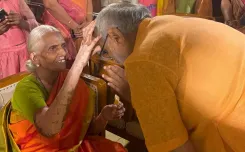Dismissed Bangladesh Rifles Personnel Demonstrate for Job Reinstatement

Synopsis
Key Takeaways
- Hundreds of dismissed Bangladesh Rifles protested in Dhaka.
- They demand job reinstatement and compensation.
- The protest stems from the 2009 Pilkhana massacre.
- Significant police and military presence was noted.
- Convictions from the incident remain a contentious issue.
Dhaka, April 6 (NationPress) Hundreds of dropped members of the Bangladesh Rifles held a protest in Dhaka on Sunday, calling for their reinstatement to their former positions and seeking compensation.
The former members of the Bangladesh Rifles (BDR), which is currently referred to as the Border Guard Bangladesh (BGB), assembled near the main entrance of the BGB headquarters located in Pilkhana. Many of the demonstrators were dismissed after the tragic 2009 Pilkhana massacre, which saw the loss of 74 lives, according to local media reports.
In light of the protest, a significant police presence was established in the vicinity, along with personnel from the army and BGB.
“They are positioned on the sidewalk across from the BGB entrance, close to the lake. We are attempting to initiate a dialogue with them,” stated an official.
According to the leading newspaper Prothom Alo, on February 25, 2009, several hundred Bangladesh Rifles personnel instigated an armed uprising at the Darbar Hall of the force's Pilkhana headquarters during the three-day ‘BDR Week’. The revolt resulted in the deaths of 74 individuals, including 57 army officers.
The mutiny concluded the following day with the surrender of weapons, ammunition, and grenades, following negotiations between the then-government and the BDR insurgents.
In the aftermath, 152 individuals received death sentences, with 423 others receiving various prison terms in what is recognized as the nation’s largest murder case. Among the convicted, 262 mutineers received prison sentences ranging from three months to 19 years. Additionally, 5,926 BDR members were sentenced to periods ranging from four months to seven years in 57 mutiny cases.
Last month, during a commemoration event in Dhaka for the Pilkhana killings, Bangladesh's Chief of Army Staff, General Waker-Uz-Zaman, urged everyone to avoid interfering with the trial related to the Pilkhana killings.
He stressed that the incident was solely perpetrated by members of the then Bangladesh Rifles (BDR).
Recent reports indicate that in the past few months, the dismissed BDR personnel and their families have organized protests, making several demands, including the repeal of convictions from the former Sheikh Hasina administration and the release of detained BDR personnel.









